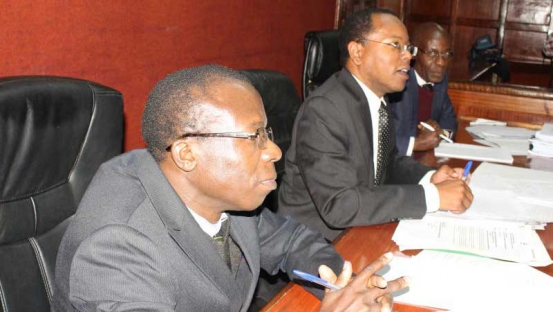×
The Standard e-Paper
Stay Informed, Even Offline

High Court Judges George Odunga, Joel Ngugi and John Mativo at Milimani law court during the hearing of ballot tender case. (Photo: George Njunge)
The National Super Alliance (NASA) is leaving nothing to chance on the elections, with yet two other suits before the High Court two days to the D-day.